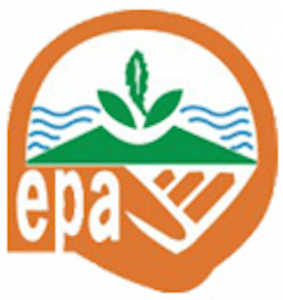Ghana’s integrated landscape restoration project will fight climate change – EPA
 The Ghana Landscape Restoration and Small Scale Mining Project (GLRSSMP) would strategically empower communities to fight the challenges of climate change and restore degraded landscape and forest reserves.
The Ghana Landscape Restoration and Small Scale Mining Project (GLRSSMP) would strategically empower communities to fight the challenges of climate change and restore degraded landscape and forest reserves.
This will also ensure integrated forest, water and natural resources management to improve upon agriculture productivity and livelihoods of vulnerable communities.
Ms Ivy Lomotey, Technical Officer, GLRSSMP, Environmental Protection Agency (EPA), made this known to the Ghana News Agency on the sidelines of a monitoring and evaluation workshop on the implementation of the GLRSSMP, for staff of Forestry and Wildlife Divisions from the Northern Savannah Ecological Zone.
Ms Lomotey appealed to stakeholders to support the implementation of the project to ensure that farmers benefitted, to increase production, “this is for the benefit of the farmers, we need to make sure that the farmers get the best out of the project”.
The six-year government of Ghana and World Bank project is being implemented under the auspices of the Ministry of Environment, Science and Technology (MESTI) and the Ministry of Lands and Natural Resources.
It has support from the Global Environment Facility, International Development Association, PROGREEN and Extractives Global Programmatic Support, among others.
The project is building on lessons, experiences and successes from implementing the Ghana Environment Management Project and the Sustainable Land and Water Management Project (SLWMP).
The project geographically targets the Northern Savannah Zone including the Guinea Savannah ecological zone, the Sudan Savannah ecological zone, and the upper portions of the Transitional ecological zone, and Cocoa Forest Landscape including including parts of the Forest ecological zone and the Pra River Basin.
It is aimed to strengthen Ghana’s natural resources management, restore degraded forest and landscapes, formalise, and regulate small-scale mining to increase benefits to communities in Northern Savannah and Cocoa Forest Zones.
Mr Asher Nkegbe, the Head of Technical Coordination Office of the GLRSSMP, explained that apart from developing community watershed management plans, providing sustainable agriculture technologies and distribution of seedlings and inputs to farmers, the project would rehabilitate degraded lands through natural regeneration and establish buffer zones to protect water bodies.
“The problem of elephant-crop raid appears to be turning into a normal phenomenon and in view of this, reducing elephant and human conflicts through stakeholder engagement, monitoring and law enforcement is critical,” he added.
Mr Asher, who is also the Upper East Regional Director of the EPA, noted that as part of the project implementation, existing management plans for the Community Resources Management Areas (CREMAs) would be reviewed to efficiently serve as guide to communities to sustainably manage their natural resources.
Mr Baba Musa Iddrisu, the Lawra District Forest Manager, noted that due to human activities and overreliance on forest products, many forest reserves across the country had come under enormous pressure, leading to climate change challenges and low productivity.
He indicated that the integrated landscape restoration approach would not only help to restore degraded lands and forest reserves but would empower farmers and communities with alternative livelihoods that would prevent them from overly relying on the forest for survival.
Mr Joseph Kwasi Binlinla, the Northern Zone Regional Manager, Wildlife Division of the Forestry Commission, said most of the animals in the forest reserves had gone extinct due to the destruction of the forest and noted that all efforts must be geared at restoring the lost biodiversity.
Source: GNA
